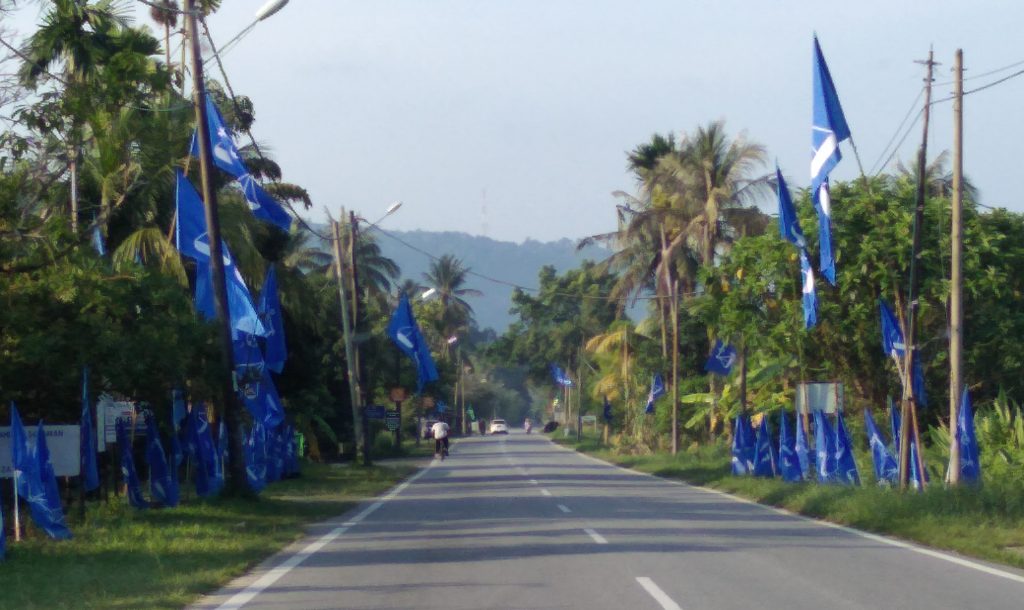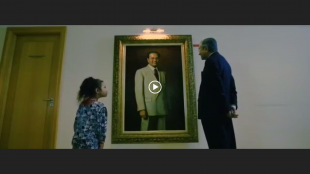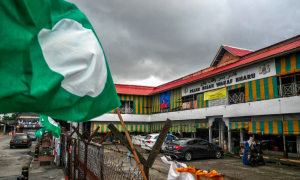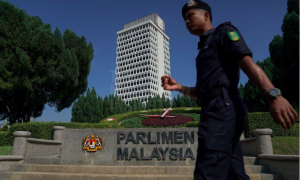In the coming Malaysian general election, the grand prize seems to be the rural vote. With redelineation passed by parliament, the power of the rural voter in deciding the fate of an elected representative can be more than 10 times that of an urban voter. Both sides of the divide are trying to woo a rural Malay public that is often vastly underestimated. Based on a series of focus group discussions and informant interviews in both Johor and Kedah, as well as extensive immersion in rural, coastal and island areas over the past decade, here I examine Peninsular Malaysia’s rural voters to discern how they might vote and the issues that matter to them.
Most rural folk live off the land and sea as farmers and fishermen, while others supplement family incomes with menial jobs as cleaners, security guards and factory workers. Earnings are not high and are perennially stagnant. All focus group discussants and informants that I spoke to cited rising costs of living as the issue that mattered the most. The end of petrol subsidies, implementation of goods and services tax (GST), inflation and difficulties in buying land and property means that there is a constant struggle to stretch pay cheques. Any handout is gratefully received. Benefits such as BR1M, while often cited as too little to offset increasing expenses, help to alleviate financial pressures—even if only momentarily.
Rural voters are too preoccupied with making ends meet to contemplate macro issues such as allegations of corruption. Some that I spoke to said that political scandals are beyond them; what the politicians did at their level bear no consequence on rural lives and makes no difference to their survival. In fact, many said that no matter who is in power, they hardly get any benefits or assistance—except for when elections roll around.
Rural voters are not unintelligent. They are aware that corruption is rife, but there is a fatalism to their mindset. They have a tendency to accept their position on the bottom rungs of the social hierarchy and do not expect to get more than what that rank entitles them to. Many raised the issue of “cronyism” as a form of corruption that plagues the middle levels of society—where political branch heads, village and local committee leaders block their access to financial benefits, job opportunities and other forms of assistance. All focus groups mentioned that while government leaders had rural communities in mind, it was this middle level that held the purse strings and disbursed allocated aid to only friends and family. Those in real need were often literally left stranded (such as during recent floods affecting both south and north Malaysia).
Social media struggles for the opposition as BN surges
Social media is now central to any Malaysian election campaign. In 2018, the opposition is facing a far better organised incumbent than last time.
Loyalty and indebtedness are characteristics that emerge from a history of feudalism. In election terms, this means that voters remain loyal to those that helped them get to where they are. A common local phrase is “kami kenangkan jasa dia” (we remember his good deeds). Older interviewees related how difficult life was before the ruling party gave them the comfort they enjoy now. This generation is quick to remind their offspring that voting for those that helped them is a family tradition and to break that practice is akin to breaking the norms of filial piety. Younger voters confessed that while they wondered about the value of their vote, they often toed the family line just to prevent tension at home.

Malay rights and Islam are undoubtedly hot button topics. Distrust of the other (usually personified by the Chinese majority Democratic Action Party [DAP]) is widespread. DAP is often demonised on religious terms as a threat to Islam as the nation’s primary faith. Anyone who engages with them (voters or other opposition parties alike) are deemed to have crossed to the dark side and are tainted with similar distrust. There is a great fear that Malays will lose everything that they believe they are entitled to, and there is also a great need to demonstrate the strength of their faith by voting for the party with the best religious credentials.
While all of the above are common threads that surfaced from the research, there were also differences. The lack of homogeneity among rural voters cannot be overemphasised.
As its birthplace, Johor has always been the bastion of UMNO. Even as he declares his political neutrality, Johor’s Sultan Ibrahim Iskandar has reminded his people that the party was born on palace grounds, funded by his grandfather. A 2017 study commissioned by ISEAS—Yusof Ishak showed that the Sultan is greatly respected by Johor citizens of all ethnicities and incomes, but even more so by the rural Malay. It is likely that the Johorean rural voter will take any opinion expressed by the Sultan into consideration when deciding how to vote.
This is very different from the situation in Kedah, where rural communities seem much more detached from their king. Loyalty is instead redirected to elder statesman Mahathir Mohamad who is fondly remembered for his contribution to both nation and state. His son, Mukhriz Mahathir, was chief minister between 2013 and 2016 until he was forcibly removed after internal party disputes. Kedahans were quick to offer unsolicited examples of projects and better times under their leadership. They also expressed their exasperation at the injustice meted out to Mukhriz and the disrespect that the remaining UMNO cadres had for Mahathir. Malay mores of respect for elders and good manners are cited as principles that politicians should never cross.
Differences between north and south also surface in the attribution of blame for daily difficulties. In Johor, rising prices are attributed to either Chinese businessmen or the federal leadership. The 2017 Johor Survey revealed that the average Johorean is satisfied with UMNO state governance. Interviewees have told me explicitly that there is nothing wrong with Barisan Nasional (BN)—as long as its federal leadership is removed. At BN rallies in Johor, successes are attributed to Johor Chief Minister Khaled Nordin. No mention is made of Prime Minister Najib Razak. The poster boy for Johor BN Khaled Nordin’s tagline is “Muafakat Johor” (Johor United); he and “Team Johor” have successfully captured the state’s support.
In Kedah, however, voters sing a different tune. Younger voters were impatient to vote for Parti Pribumi Bersatu Malaysia (PPBM). They were vocal and adamant in wanting to give the opposition a chance to govern, especially since experienced hands such as Mahathir and Mukhriz were part of the line-up. They were less distrustful of DAP. Older voters seemed a little torn between the party that they had always voted for and the man that they knew and loved but is now standing on the other side. Adding to the confusion is the presence of PAS who was once Kedah’s most credible opposition party and who holds the most visible religious credentials. One informant mentioned that if PAS was part of the opposition team, UMNO would be done for. Many others maintained that it was hard to decide. At times they would whisper their support for the opposition, or state that you just can’t say that you disagree with UMNO (meaning that they lean towards the other side).
A lack of homogeneity also exists within states. In east Johor, FELDA voters expressed unfailing support for BN. To them, those who have left the party are ungrateful disgruntled individuals; that corruption allegations are fake news; and that they were willing to vote across ethnic lines as long as BN wins. In west Johor, voters were more doubtful; some were apathetic as they felt that they suffered no matter who is in power. Some mentioned that if there is good fishing or bad weather on polling day, they would have better things to do than vote.
In Kedah too, there are differences. While the majority seemed to be in support of Mahathir no matter the party he stood for, many are recipients of BN’s recent generosity. Gifts of land grants, new homes, double the BR1M amount and myriad other goodies go a long way in solving financial problems. The question is whether these voters can look past election bounties when they vote.
The rural voter is not a single homogenous block. While survival is their priority, overarching Malay principles of hierarchy, loyalty and the need to preserve Malay rights and religion will have an impact on their decision at the ballot box. It is the person that has always been there for them in times of need (not a parachuting politician) and the one who can alleviate immediate difficulties that will win the vote.
 Facebook
Facebook  Twitter
Twitter  Soundcloud
Soundcloud  Youtube
Youtube  Rss
Rss 





